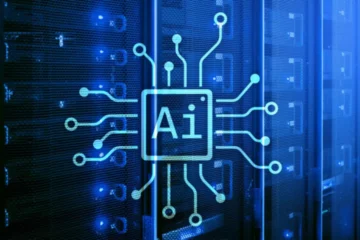DevOps engineers collaborate with developers to combine AI models into applications seamlessly. They be certain that deployment pipelines align with software release cycles, decreasing downtime and increasing effectivity. DevOps engineers should additionally keep updated with the newest developments in containerization, serverless computing, and AI-powered automation tools. As industries continue to undertake AI and deep studying technologies, these professionals must be positive that infrastructure helps scalable, dependable, and safe AI workloads. This role requires high-level communication and organizational skills, in addition to a wholesome dose of technical know-how. They should have the power to bridge the gap between builders, operations teams, and stakeholders to be able to be sure that all elements of a launch come collectively optimally.
Day-to-day Activities And Deliverables List Of Devops Engineer
For a hybrid or completely cloud-based group this can normally embrace provisioning and managing digital instances of the identical components. In conventional setups, security teams operate individually from software developers. Fast development cycles require DevOps engineers to integrate security into the pipeline.
For extra insights into DevOps practices and tools, visit our Data Base and take a look at https://deveducation.com/ our complete Jenkins Information. Success isn’t determined by whether or not you host workloads on premises or within the cloud, and it will not necessarily matter which OSes you utilize. Still, a group that wishes to design a DevOps-friendly architecture ought to hold sure objectives in mind. That’s as a outcome of agile, scalable groups are a essential ingredient towards staying ahead in the digital transformation race.
Collaborating With Information Engineers And Software Builders

Transitioning to DevOps requires nurturing a learning tradition during which a group repeatedly fails, learns from mistakes, and improves. Formal documentation enables engineers to report new features, supply code, system necessities, design directions, bug fixes, tool guides, response plans, etc. A DevOps engineer is liable for the configuration and optimization of infrastructure parts.

Prime Programming Languages To Study Today
They wear multiple hats, driving innovation, fostering collaboration, and making certain the smooth supply of software. By leveraging automation, modern tools, and a tradition of continuous enchancment, DevOps professionals help organizations stay competitive in today’s fast-paced digital landscape. If your group hasn’t embraced DevOps yet, it’s high time to explore its transformative potential. DevOps professionals must be well-versed in cloud computing platforms like AWS, Azure, or Google Cloud. These platforms provide scalable infrastructure and providers, enabling organizations to deploy and handle applications efficiently. To get the most out of DevOps, a business should have interaction other groups within the group, even these whose members aren’t in technical roles.
Containerization improves portability and ensures consistent performance across cloud and on-premise environments. DevOps engineers use Infrastructure as Code (IaC) tools like Terraform and AWS CloudFormation to automate cloud useful resource provisioning. Designed for those leveraging Google Cloud, this certification ensures proficiency in CI/CD, website reliability engineering (SRE), and cloud automation.
A DevOps engineer uses automation to make software program improvement constant, dependable, and environment friendly. Automation is present at each section of the software lifecycle, from construct triggering and unit testing to packaging and deploying to environments. One of the first things you can do to benefit from DevOps practices is to form small cross-functional groups that work in the course of a standard goal. An Agile DevOps group structure can encompass software program engineers, QA specialists, UI/UX designers, safety, and IT specialists, who all share the identical targets and duties all through the development lifecycle. There are a wide selection of technical coaching offerings an IT skilled can pursue to earn a DevOps certification.
The perfect candidate may have expertise in cloud platforms, CI/CD automation, containerization, safety finest practices, and AI/ML model deployments. They might be answerable for driving automation, fostering collaboration throughout teams, and ensuring the secure, reliable, and scalable operation of systems. DevOps is a set of practices that combines software program development (Dev) and IT operations (Ops) to reinforce the collaboration and productivity of development groups and operations groups. The aim of DevOps is to enhance the software program improvement lifecycle by making it quicker, extra efficient, and dependable. Historically, development and operations teams labored separately, however DevOps encourages them to collaborate at every stage of the software growth process, from planning to deployment and upkeep. The DevOps method to software growth aims for frequent, incremental modifications to code variations, which implies frequent deployment and testing regimens.
It is also about transforming current staff infrastructures, communications, and business objectives. There is bigger visibility across departments as a result of there’s a DevOps staff hierarchy. Builders, operation engineers, and QA testers communicate higher with each other, handoffs are extra seamless, and there are fewer misunderstandings. Suggestions loops allow continuous enchancment, with insights driving higher planning, development, and operations in future cycles. Automated build instruments compile the code and create executable artifacts, making certain consistency and lowering errors.

Automation instruments like Jenkins, GitHub Actions, and GitLab CI/CD assist them ensure rapid and dependable software delivery. Quite than having dedicated software program growth and IT operations groups, a DevOps group construction encompasses each. Continuous integration, deployment, and suggestions loops result in quicker releases and enhanced reliability. Additionally, it brings varied technical benefits, corresponding to steady delivery, early detection and correction of problems, and simple project administration. Enterprise benefits corresponding to faster delivery, KPI administration, and improved group collaboration are additionally super necessary.
- Our customers trust Splunk’s award-winning security and observability options to secure and enhance the reliability of their complicated digital environments, at any scale.
- A DevOps engineer lies on the coronary heart of a DevOps transformation and should have a broad set of expertise to facilitate this alteration.
- Second, builders who support DevOps should have at least a working understanding of what happens to code after it’s deployed.
- Being part of a DevOps team doesn’t mean you’ve a whole group made up of “DevOps Engineers”.
- By automating infrastructure and workflows, in addition to continuously measuring application efficiency, these professionals are instrumental in fostering a tradition of teamwork.
As the business world turns into more and more reliant on technology, the role of a DevOps engineer is changing into more and more necessary. Corporations devops engineering course search individuals to help them streamline operations and maximize their IT infrastructure. If you’ve a strong technical background and are interested in working with each growth and operations staff, then a profession as a DevOps engineer could presumably be the right match for you.
